Andrew Câmara
Andrew Câmara is a two-time MARTY Awards nominee for his contributions to the arts and cultural activity in Mississauga. His parents, Maria and Joseph Câmara immigrated from São Miguel and established themselves in Mississauga in 1974. Andrew Câmara has two older twin sisters, Angie and Pauline.
Realizing at a young age that he had an aptitude and desire to create and work with his hands, Andrew took a cosmetology course in high school and entered the field in 2002.
Andrew is passionate about volunteer work, which has transcended the Portuguese community. A “huge advocate for youth, culture and community building,” he has been involved at the Portuguese Cultural Centre of Mississauga (PCCM) since his days as a student at the Centre’s Portuguese school. He is a past president of the Karate Youth Group, has hosted the Miss PCCM pageant and Carassauga, and continues to volunteer as the rehearser/choreographer for the Centre’s folklore group.
Most recently, Andrew organized a record breaking event—Largest Portuguese folk dance. The new Guinness World Record—747 people dancing the Portuguese folklore dance “O Vira.” for 7 minutes— belongs now to the Canada’s Portuguese community, thanks in large part to Andrew’s efforts.
Andrew Câmara is proud of his Portuguese roots, and his volunteer work in the Portuguese community stands as an example for the younger generation.
Revista Amar: Who is Andrew Câmara?
Andrew Câmara: Andrew is a first generation Canadian born of immigrants that came from the Azores Islands in Portugal. I’m a huge advocate for youth, culture and community building, because that’s what I got born into…I followed the example of my parents. So, I’m a community guy and I love being a part of things that are for a good cause. That’s who Andrew is. I have twin sisters, Pauline and Angie, they’re born ten years before me. My mother’s name is Maria and my dad’s name is Joseph and both are church-going people. Very religious, very traditional as well and a little old fashioned, but I think my mother was sometimes the more modernized one. She was sort of taking the different approach to things that sometimes gave my dad a hard time. So that’s kind of us as a family. We were always in the Portuguese club as volunteers. I was in there for Portuguese school, president of the Karate Youth Group, host of the Miss PCCM, host of the Carassauga and any way that I could get involved, I was always involved and still am.
RA: How was it to be a younger brother to twin sisters?
AC: To be honest, it was very interesting. It kind of felt like I had 3 moms, only because they were sort of much older than me and it wasn’t only until, I think, I was in my later teens that I was able to engage with them more. It was always good though, because I was able to be more independent and be self-sufficient with a lot of my life. They were always good role models and always there with the best advice, so I was very lucky for that.
RA: You are a hairstylist/hairdresser… although its considered by the general public as a female occupation, the great or famous hairdressers are male, like Vidal Sassoon, Paul Mitchell, Frédéric Fekkai or Ted Gibson. When did you feel attracted to this career?
AC: I was attracted to this career in high school, in grade ten. I had the ability to take a course of cosmetology, because I liked to do two things… I like to create and work with my hands. So, the first ability to do that in high school was either to go to carpentry, maybe go into auto, but then there was, you know, the hair course available. Therefore, I chose that and I didn’t stop. Since 2002, which now makes that 21 years ago, I’ve been involved in the industry, and I think it’s an industry that’s always growing and can sometimes really make a lot of people feel good about themselves professionally.
RA: Professionally, what is your goal?
AC: Professionally, my goal is to know that I leave a mark on other people’s lives before I die. I think that’s kind of my goal in life too… whether it be making people’s hair look good or whether it’s getting them to dance in a folklore group when they didn’t think they really wanted to do it and allow people to be free and happy. And that’s kind of, I think, my goal in life.
RA: In regards to being the son of Luso-descendents… how was it to grow in a Portuguese household?
AC: It was interesting… sometimes you didn’t really know what your identity was, because you’re born in Canada. So, what is it to be Canadian? Is it drinking Tim Hortons, playing curling and watching hockey, having maple syrup and beaver tails? Is that what it is? Or is it understanding where your parents came from? So, it was very difficult to understand who you are, because there are these the push and pull of being Canadian, being Portuguese, and I didn’t know which one was more important… I think it was a bit confusing.
RA: What is your relationship with the Portuguese culture?
AC: Well, my relationship with the Portuguese culture is understanding that however things were done in the past can be different moving forward, because right now we know how our Portuguese community is… the feasts and festivals that have happened since the sixties, since we’ve immigrated here are not that much different than they are now. We have the festas, we have the celebrations, but I think now we’re seeing that our community and our culture is changing a bit. We have more influence of African culture in our music and we’re listening to more African-Portuguese influences in music and I think that’s beautiful. So, that’s kind of what I feel that is happening.
RA: What does “community” mean to you?
AC: Community means to me a safe place and a place where everyone feels they belong. I feel like in our folklore and communities, when people want to just come and be a part and volunteer, we always have to remind themselves it’s a place where people want to come and feel good about themselves, that they have a family outside of their own family… and it’s true! That’s what we always believe, that we’re a big family. That’s what I really feel community means to me.
RA: You are an active member of the Portuguese Cultural Centre of Mississauga. Why did you stay so connected with the club?
AC: I stayed connected with the club, because I also wanted the same thing too. I wanted to feel a part of something. I would say that being an adolescent in the early 2000s, I experienced a lot of bullying, I experienced a lot of like, you know, discrimination for wanting to go into a female derived career and so on, and I just felt like more and more and more I could feel connected to something at the centre, whether it be through dance or whether it be through hosting events or being my own person in a community. So, I think that that’s kind of what really kept me a part of being a volunteer at the club.
RA: How long have you danced in the Rancho Folclórico do PCCM?
AC: I started five years after Nancy Vieira, we are still the last two members. So, I started in 1992 and Nancy started in its founding year in 1987. Since then we’ve been dancing through all of the changes that have happened in the folklore, and we’ve stayed commited and now it’s, you know, we’re the “Bonnie and Clyde” of the Portuguese folklore at PCCM.
RA: But you are as well one of the ensaiadores/instructors, who are the others and why became an ensaiador?
AC: It´s Nancy and I. Well, I’m just really passionate about it and I like to assume a responsibility that, you know, no matter what our group has, people were keeping together, we keep people engaged. As we know, after two years, priorities have changed and not everyone is dancing, and I wanted to teach only because I truly enjoy folklore. The idea of the dancing, the costumes, the variances inside one country of Portugal that from 15 kilometers over a border from Alta and Baixa Extremadura, you have a completely different focus on folklore. So, I love the diversity in Portugal, that’s why I like it.
RA: But aren’t you involved in other organizations too?
AC: Outside of the Portuguese club, I’m an active member of the Arts Community in Mississauga. I’m a two-time nominee at the Marty Awards…hopefully next year I can win! (laughs) But I’m also…how I can say it…before I had injuries I played a lot of competitive sports but unfortunately, I can’t do that anymore. Other than that, in my beauty industry, again, 20 years in it, I am still active and I’m training hairdressers all across the province. In my building, for about one and a half years, I am now the Peel Standard Condominium president of the condo board here at the Tower. I moved in here about a year and a half ago with a pre-construction purchase in 2017, and we’ve seen the building grow. Right now, just in my neighborhood there are currently 24 towers slated to be built in my neighborhood. So, this city centre area of Mississauga is growing exponentially.
RA: What are the duties of a Peel Standard Condominium president?
AC: Well, we meet monthly to discuss all of the reports, the variances, complaints, repairs, the reserve fund, the finances, ongoing issues that we need to keep on track. As an example, changing the time of when the gym opens, you know, if a resident wanted to come to the gym earlier, they need to ask us. So, we’re the ones that are responsible for things that need approvals, invoices and maintenance jobs on the building.
RA: What´s new in your building?
AC: Well, what’s new in my building is that we have a rock-climbing wall, it’s going to be very interesting and I think it’s awesome. We also have a basketball league, badminton league, yoga and Pilates, so, a lot of amenities here! Oh – and we just installed an electronic newsletter video screen so that when residents are coming in and out of the building or waiting for the elevator, there’s a video tower with the digital emails that they get, just in case they don’t get the emails all the time and it´s something nice and visual for them to see.
RA: Recently, thanks to your idea, the Portuguese community broke a Guinness World Record that belonged to Portugal. Before we go there, tell us first how you knew there was a record and secondly – why try it here, in Canada?
AC: So, on the Sunday of Carassauga 2019, we were closing up, all volunteers were coming together and something we do every year is eat some food and celebrate our work. I had been watching this YouTube video of the world’s largest Portuguese folklore, because we celebrate the fact that at our centre, we celebrate everything that’s Portuguese, we don’t limit ourselves to a region. Therefore, anything’s possible with us! So, the conversation about that video was between Tony De Sousa and I, but Nancy was there and even Jorge Mouselo was there. Everyone sort of looked at me and said: “Are you serious?” and I said: “Yeah, I’m pretty serious, and I hope you will be, too, because I’m serious!”. This conversation happened during food talking and I was walking around and I’m looking at it and I’m like: “Guys look at this” and everyone’s like: “Yeah, yeah, sure Andrew… Guinness World Record, sure.”. They didn’t know that I was completely serious. So, from that moment I submitted the application and I never looked back because I had faith that we could do something this big, because I know the Portuguese community that is in Ontario would never have a problem if we would come together and did it. For that reason alone, I knew we could do it and I never looked back. I said: “Why not? Why not do it?” We have the property to do it and the parking lot to do it. Nancy and I measured how many people we could fit in, and we said: “That’s it. We’re going to do something big and crazy.”
RA: Who had the record, with how many people and how many minutes?
AC: The record was held by the Associação Cultura e Recreativa do Rancho das Rendilheiras do Monte, from Vila do Conde, Portugal with 744 people and 5 minutes… the minimum that the Guinness needs and they did it.
RA: When you said you wanted to apply for the Guinness to the board of directors of the PCCM, how did they react? Did you get instant support of them?
AC: They never knew about it. I went ahead and applied for it and then I just told at a meeting that this is what we’re doing to do, because Tony was someone who loved and wanted youth and folklore to live better than they knew they could… so he said at approval: “Just go, we’re doing this. Yes!”. I had instant support from everybody 100%, but we still had people that said: “This is a bit too much”, you know, we still had people saying “Whoa! Be careful!”, you know. And why? Because it’s never been done before, the fear of the unknown, you know? We’ve never had 800 people in our property doing something of that kind. So, it’s was like getting married – you don’t really know what it was going to be.
RA: Was it hard to reach out to the Guinness organization?
AC: You know what? No, the Guinness organization is great. Very good to work with. They’re very transparent and clear. They get back to you. The process was easy. You just got to follow the steps of what you upload. It’s actually very easy. I was very impressed.
RA: After the application, in June of 2019, what were the next steps?
AC: Pretty much the summer of 2019, the application went through. Then we started the process… we had to upload again the layout of your area and submit how we were you going to count the clicker, the wristbands and so on. All these details you submit prior and they approve you every step of the way.
RA: How long did it take till the last approval?
AC: It took until January of this year, because the pandemic paused it, everything was paused. However, until the organization receives full payment, nothing is really happening.
RA: The total for the Guinness was $20,000.00 dollars, right?
AC: $20,000.00 American dollars plus expenses… and the only way that they receive it is through a wire transfer in US dollars.
RA: You had to pay the full amount to get the approval?
AC: They ask for it in two installments, deposit and final. So, once we had sent the final payment, that’s when we got connected with Hannah, the adjudicator. So that’s how it goes, the approval process.
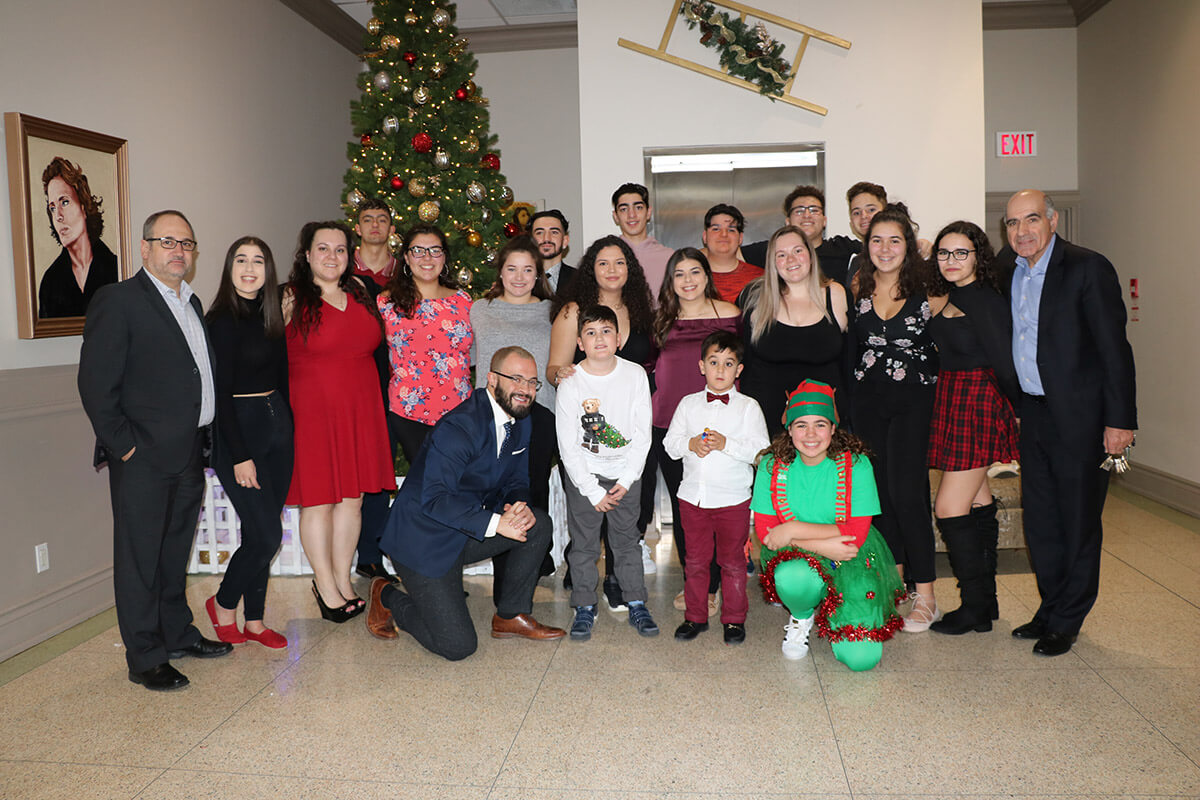
RA: Once it was publicly announced in the community, what was the feedback?
AC: When it was initially posted in the community, the initial feedback was automatic resistance. That’s how I felt about it, but I wasn’t surprised, because we are in a stage of coming out of a pandemic. A lot of people were suffering from bad times, depression, money problems…not everyone was okay. You know, some people got sick, some people lost family members, people were really suffering. So, I think that was the initial reaction, because we knew about the state of the world and society. However, after we got the ball rolling a little bit after our first press conference, that’s when I was actually the most worried, because it was either: do we not have any more folklore groups? Does no one want to dance folklore anymore? Or are people generally not interested to dance folklore at a world record event? So, those two concepts were in my mind the whole time and “what’s the real reason?” Then we started hearing that there were some folklores that weren’t coming together and it was really unfortunate to hear that, not all groups were surviving after pandemic. When I myself personally called the instructors, not all of them said the groups are together. So, it was a bit sad to know that not everyone was together, that was the initial reaction that I got when we first went out public. Nevertheless, we were very happy and we got responses from groups. A lot of people registered individually from groups, but not complete groups. The thing that was most important to me was getting responses from groups that we’ve never worked with before. We’ve never had Oshawa Folklore Group dance at our centre, we’ve never had the Montreal group dance at our centre. So, this was new and we, at the end of the day, wanted to unite our community together, because of the hardships we experienced for two years and as well as for people that we lost to cancer and all the things. So, that was initially the reaction I guess, but I think and I’ve always said it before – you always know you’re doing a good job when you have haters out there. So, when I felt that there were people who were generally just not interested in what we were doing, I said: “You know what, guys? We know we’re doing a good job. Let’s keep on doing it. Push and push, keep on talking and talking and welcome everyone who’s not Portuguese!” And we just ended up being successful.
RA: And support?
AC: I am so proud to be a part of a centre that legitimately can walk the walk behind the talk… we want to have open doors; we want to bring people together in very different ways. Not everything has to be Portuguese and I think if we keep with this forward, everything has to be Portuguese, we may not survive. So, the feedback of people who were not Portuguese being a part of this when the record was announced that they’re crying, they’re getting emotional, because they’re dancing for a loved one that recently passed away, that they’re not here, that loves to dance… and everyone was just connected with this international language, which is called dancing. It didn’t matter what culture you were from. And when, Nancy and I were on that stage, I looked to her and said: “Nancy, is this really happening?” – well, we knew before all the disqualifications, that there were more than 800 people… we’re doing it. It’s like a wedding we planned. So, it’s the most amazing feeling of having people that just came together for a good cause that wasn’t Portuguese.
RA: Why did you choose the motto “Dance for those who can’t”?
AC: Actually, it came from Michael Douglas, president of the Mississauga Arts Council. I initially spoke to him in 2019 and he said: “Andrew, I love the idea, but you kind of have to, you know, get a good cause”, because at that point, Michael Douglas was doing things around mental health and they still do it. Actually, I was recently at one of their meetings where they’re talking about grants and they’re still talking about mental health. So, I’m like: “Okay, dance for a good cause. Dance for… dance for the people who can’t dance” and then, at that point, I had lost my father ten years ago. We lost a mother from our folklore group and we recently, a month ago, lost the oldest member of our folklore group, he played guitar in our group. We lost Tony de Sousa, sr. Tibério Correia, sr. Pereira, sr. Medeiros… so everyone was sort of like, this is a way to bring people together and it made even more sense, because I’m sure you remember when we did that whole online Portugal show, were we brought the directors of the Portuguese club and everyone did interviews. Now, I look back and I’m like “that’s Tony’s last event”. We did Amor, Alma e Coração – a Portugal show and we were across all these countries and that’s the last time he was on TV” and that’s actually recorded, it’s permanently there.
RA: You had to postpone the date from July to September… why was that?
AC: We had to postpone it, because we knew our numbers where not where they needed to be. We knew that the timing was not going to be able to bring the entire community together, because some people were going to Portugal on vacation and we had to decide within a week. We thought “okay, we’re doing it, but we know we’re going to have to sacrifice. We know we’re going to get consequences. We know we’re going to hit some roadblocks”, but it didn’t matter. We knew we needed to change it. So, we decide to do it after school was back and we took that chance that we got – all those months back -, and we used the summer and in all the events that we would dance we would promote the Guinness Record and recruit. And that’s what we did, we started to go to Latin dance schools and invite other people to come, which was great. We had the Filipino community from the Mississauga come. It was awesome.
RA: Did you ever had doubt, that the attempted could fail? Why?
AC: Yes, from the beginning! Since day one, I knew it. You have to understand that it might just not happen, but it would still look beautiful if we had 743 people there. It would still be amazing if we did it. We wouldn’t do the record, but it would be something emotional that everyone came together for. Yes, I was ready for that.
RA: But it didn’t fail, the Guinness World Record was broken by 3 people and 2 minutes. What did you feel when the Guinness World Record adjudicator, Hannah, announced it?
AC: What I felt was that I knew it and we deserve it!!! No matter what happens, you have to believe that things can really happen. Because I feel like we sometimes are our own critics, that we don’t think we can do big things, but I also felt a big sense of relief that everyone that came here came for a reason and we were able to do the record. I also knew, that the souls that have departed were on that stage with us as well. We couldn’t see them, but they were on our shoulders kind of patting our backs too and that was a great feeling.
RA: Now what comes next? Do you have any project in hands?
AC: What comes next is with our youth group and, right now, is honestly on a roll. Myself, I’ve always liked to have a type of folklore festival, done in a very PCCM way, so I’d like to say that, maybe, that’s the next project that is going to start. Probably it’s going to be planned very soon, but it’s something in a way that we don’t do yet, because I know we need change… we need things that are different in the community and we can’t do the same festas that tio José did in 1975. So, we’re always changing on how to do it differently. Hopefully, with myself and the youth group presidents Nancy’s daughters, we’re going to work together and do a couple of different things. I already have a type of folklore festival in planning for next year. So, I hope that the community loves it.
RA: How proud are you of your Portuguese roots?
AC: You know what? I’m proud of my roots, because it’s not always easy growing up having parents from the islands. Both my parents, are from São Miguel… from a village called Água De Alto, municipality of Vila franca do Campo, which was the first capital of the island before an earthquake… people need to know that (laugh). Festas da Nossa Senhora da Pedra, you got to know about it. But, more so, because usually people from the Azores generally aren’t always pushed to speak Portuguese differently. They adopt an accent. We keep the accent. It’s sort of not professional.
RA: Who says that´s not professional?!
AC: Many people… you know, sometimes people say: “Oh, you’re from the islands” and I’m fine or some say: “That’s not really Portugal”.
RA: What?!
AC: (laughs) You know, you grow up with some Portuguese people that can be ignorant. They don’t know what is to be Portuguese or what it really means. So, those are the people that I’m like “Oh, so you weren’t brought up right? Not my fault.” So, I’m proud of it, because I’m a part of a centre that we can celebrate everybody. Our folklore dream is to represent all of Portugal. So new members that come in from certain regions, they want to see themselves represented. We can represent them. So, that’s the beautiful part and now we have a couple of new members – a new member from Pico, another from Guarda and Viseu. We don’t have anyone from Algarve yet, but we have a costume/traje algarvio and we could just make it happen. I dance with Baixo Minho costume, but we have Alto Minho… actually from all of Minho, Trás-os-Montes, Douro Litoral and I think that’s our celebration. That’s why I like to be a part of my folklore so much.
RA: Did you learn all of Portugal´s regions because of the folklore? Like which traje/costume belongs to which region?
AC: Yes, and it’s actually a big responsibility. It’s not easy, because what our folklore does is not what others do. At this time, we’re the only folklore in our community for the past 20 years that represent all regions simultaneously. So, we are constantly under scrutiny for wearing our costumes properly, for dancing it properly, if you’re not doing it traditionally, you need to do it this way. We even had people that came to our Guinness World Record dancing that said that one of our songs is not done right. People just know and they’re passionate about where they come from. So, that’s why I’m so passionate about wanting to know how things need to be, like the apron; the little pocket over or under. People notice that. So, those fine details, that’s why there’s so much responsibility to make sure that everyone’s costume is in tip top shape. I don’t need more friends, but I need a well-done group. I don’t need to be everyone’s friend in the group, but they know when I come on them, it’s because they need to iron that skirt, bring the headpiece, etc. Nancy and I are working better to share our responsibilities differently, because sometimes I’m on the floor too much and then she’s doing something different, so we’re looking at everything importantly and yes, those things are very important details. We’re not a federated folklore, because of the way we do it and that’s nothing that we wanted to do, but still, you don’t have to wear makeup, you don’t have to or wear sunglasses while you’re dancing. Therefore, that’s a big part of our group, too, just wanting to be responsible for having the focus on. Meanwhile, as of right now, I’m working on a project so that everyone’s folklore costume has the actual title and where it’s from, because what we like to do in our folklore is a “desfile dos nossos trajes por região” and we’re going to do that on our anniversary very specifically, because I think that that’s something that we can offer, I love that!
RA: I would like to invite you to leave a message to our readers.
AC: I would like our community to remember that being stronger individually is nowhere near as strong we can be together. We have a lot of little houses in our community that if they put each other’s arms on each other’s shoulders, we would probably have one of the most envious Portuguese cultural clubs in the world in Toronto. If we can come together in ways that we may be uncomfortable with, it would only be for the betterment of everybody. So, I hope that coming together can actually be a realistic task for people to understand that together is really the only way to do it. That’s my message to the community.
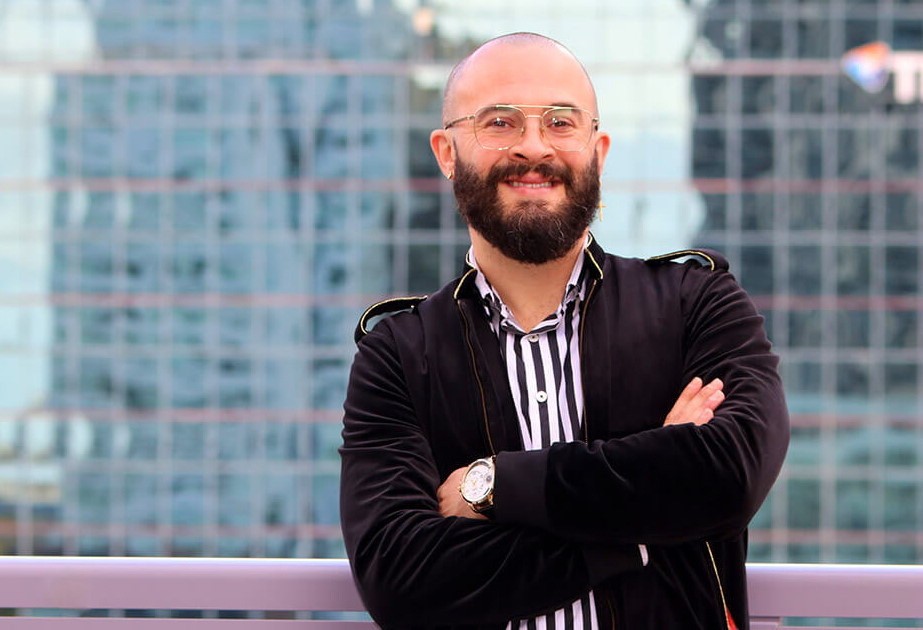
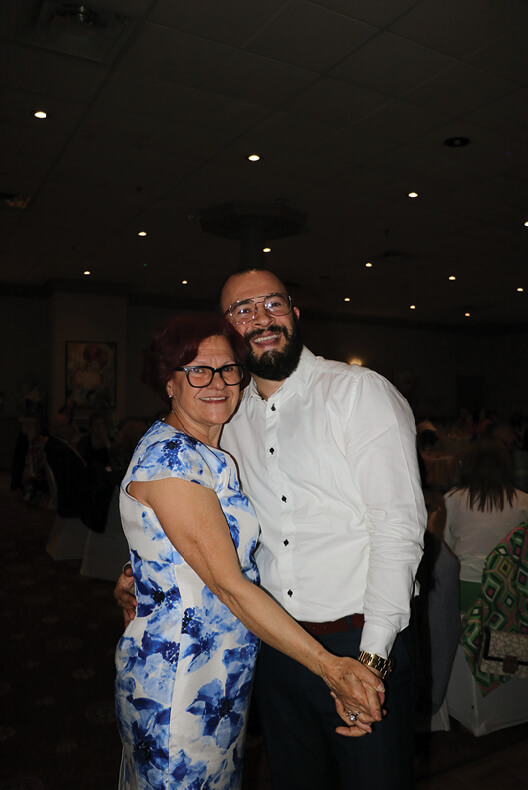
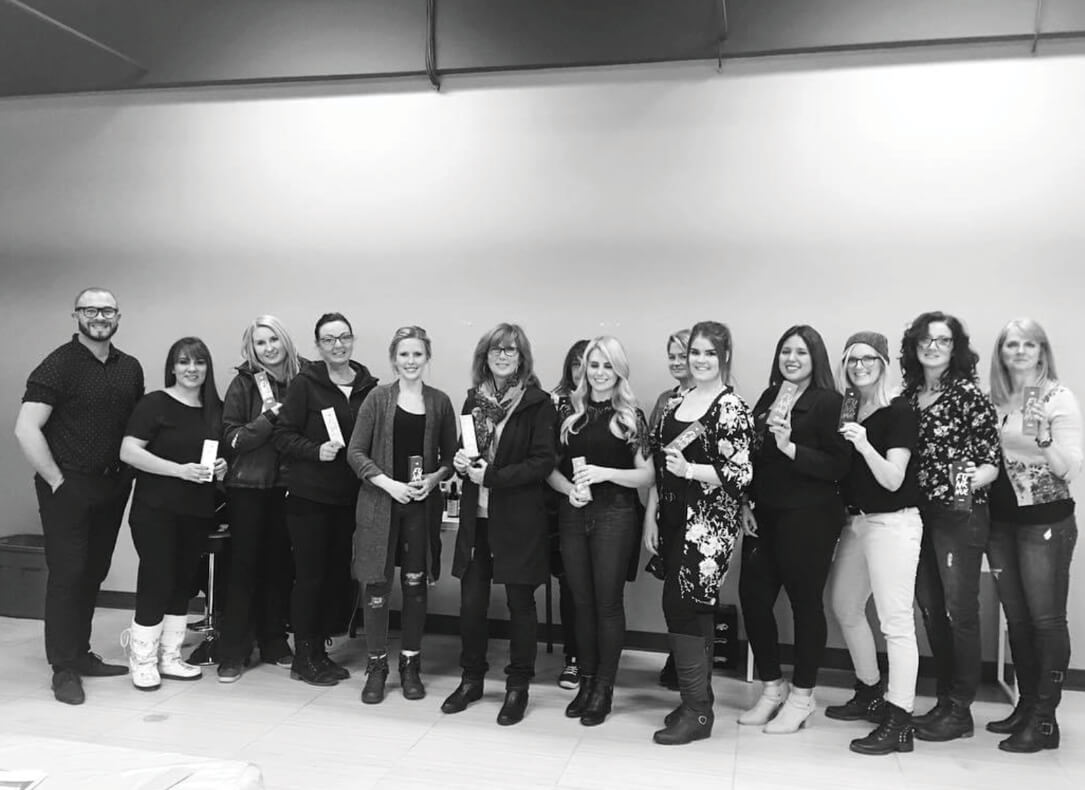
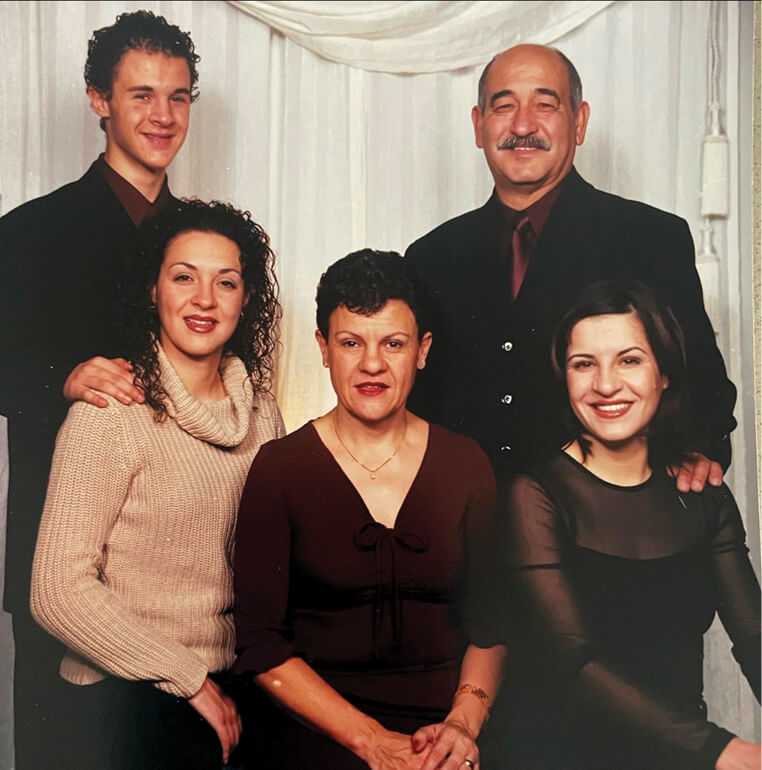
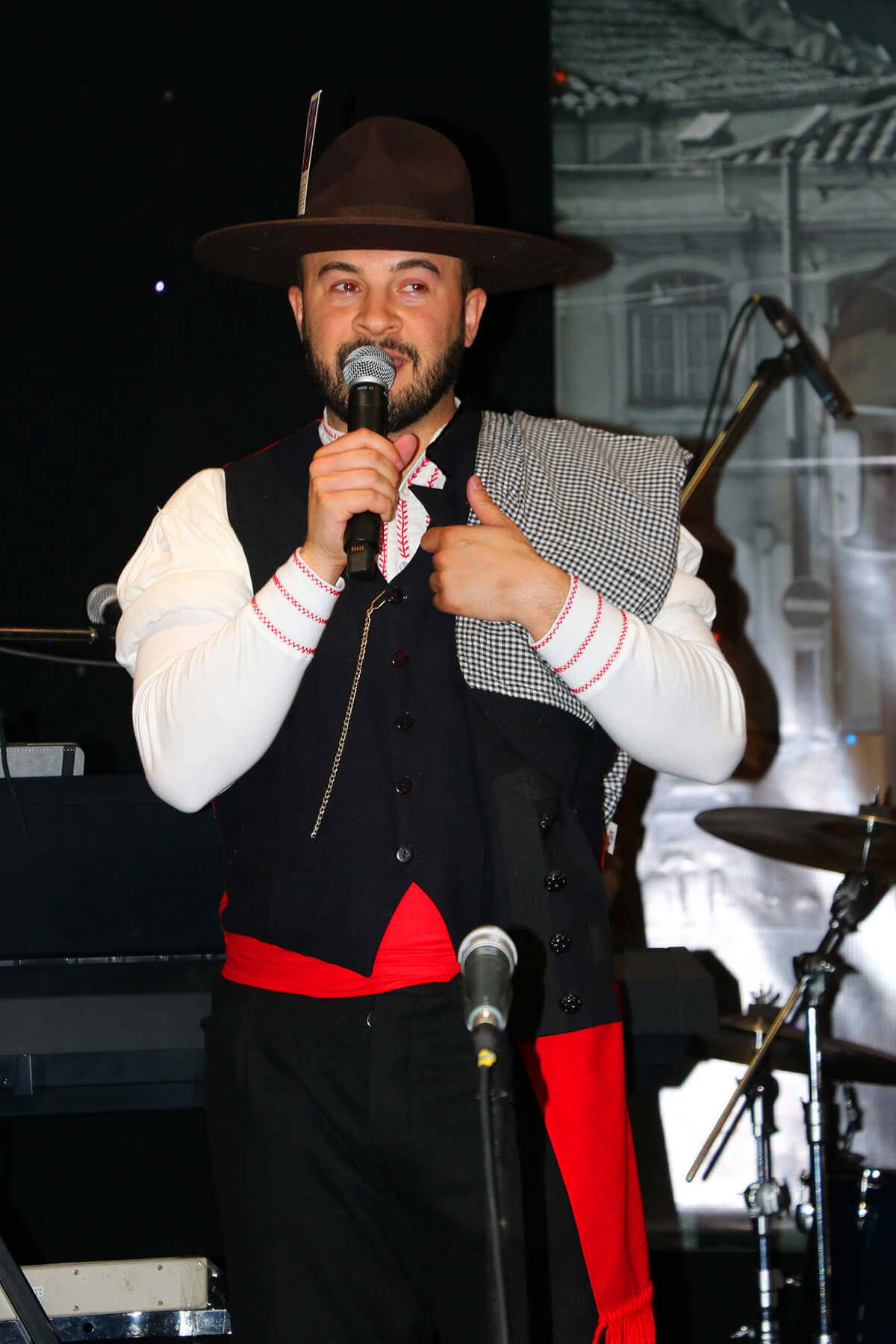
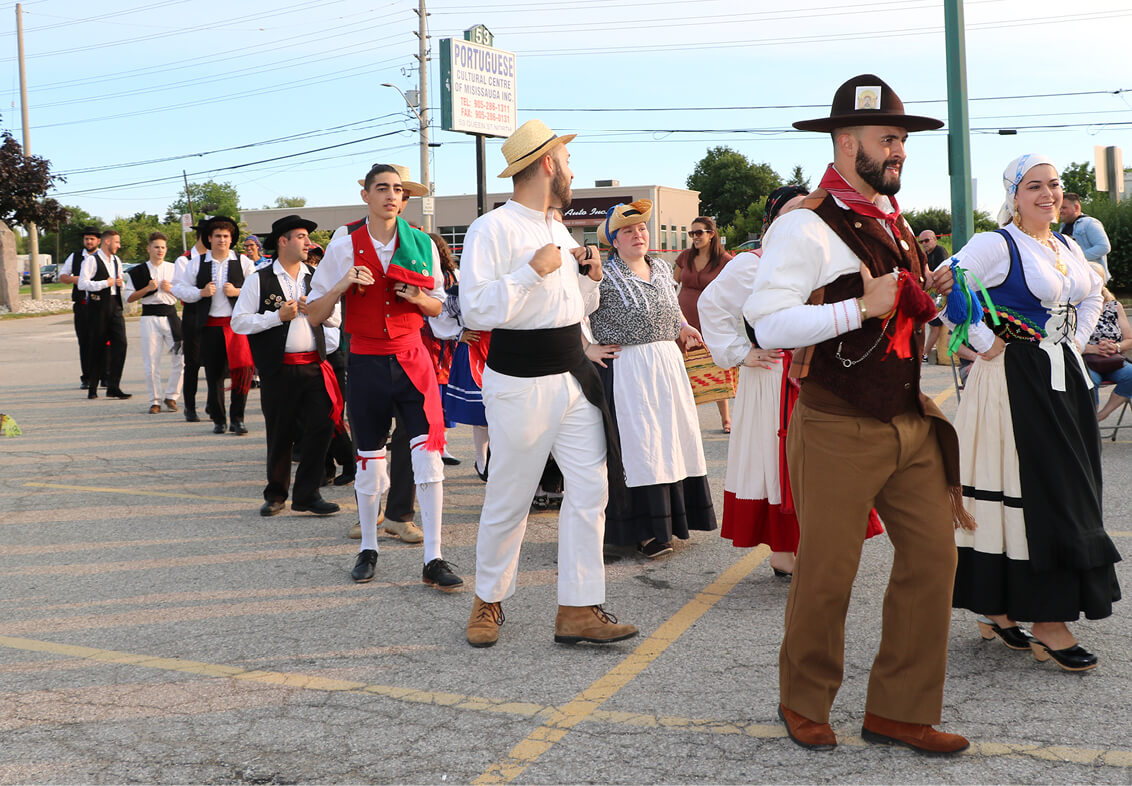
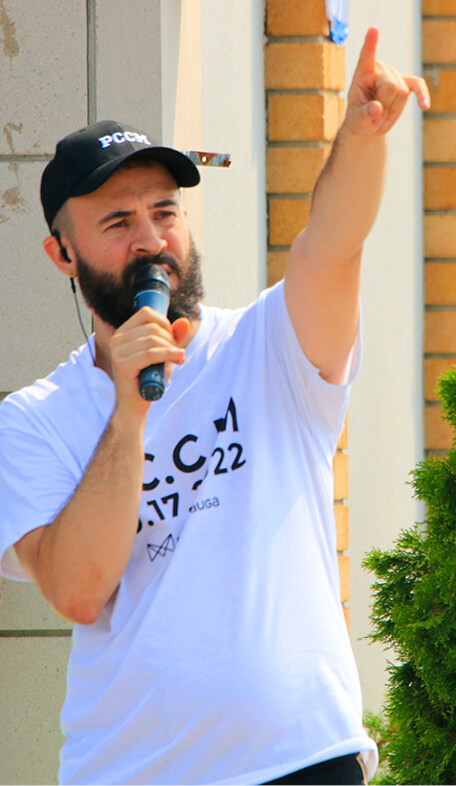
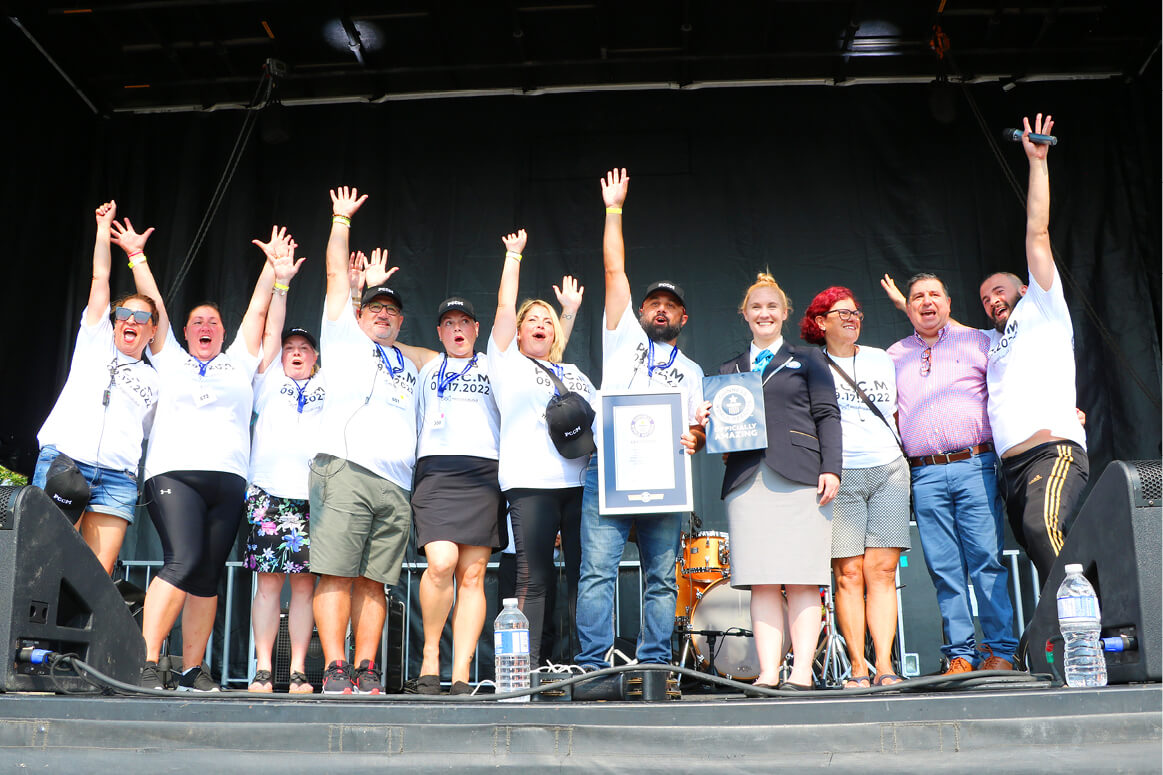
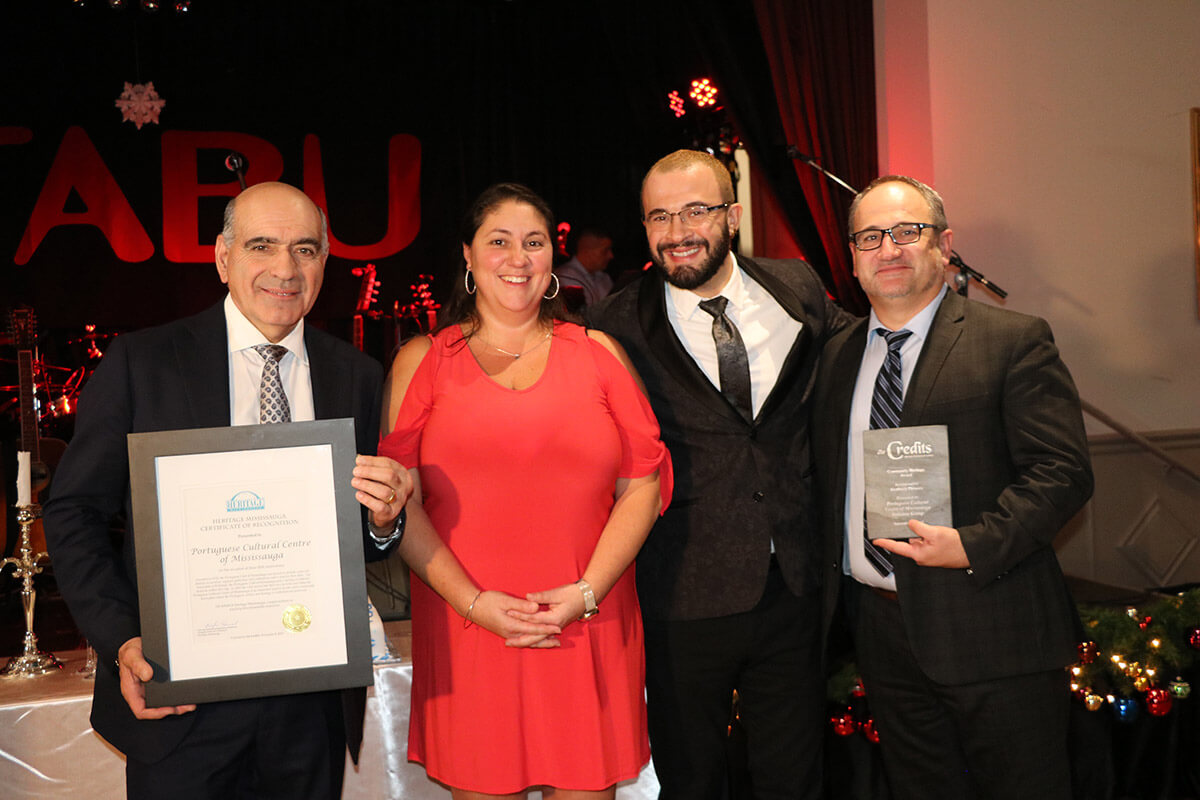
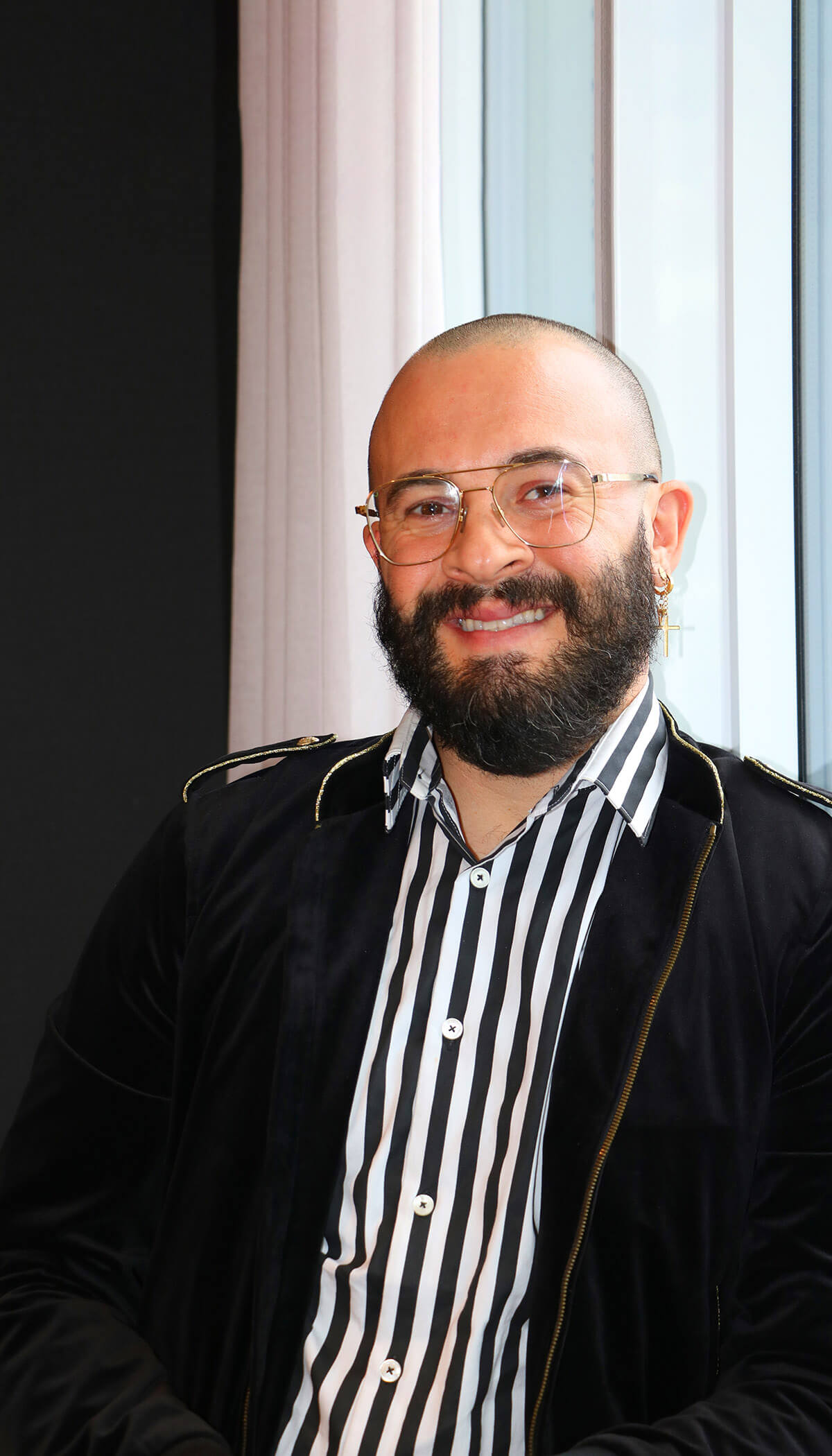
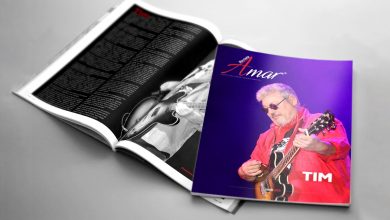

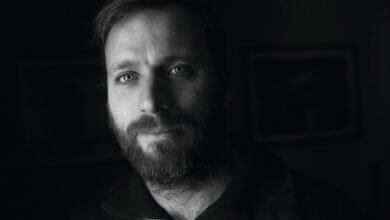

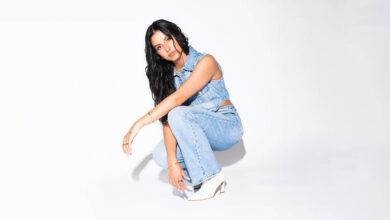
Redes Sociais - Comentários